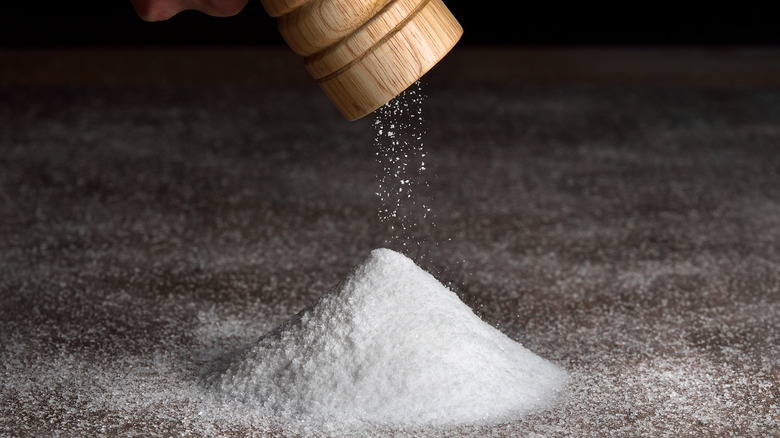How Sodium Affects Your Bone Health
Many of us don't give our bones enough credit. They provide structure for our bodies, keep muscles properly anchored, and protect vital organs like the heart and brain. The health of our bones is just as important as the health of our lungs and heart. Bones do not stay stagnant, as many people believe. Old bone is continually broken down while new bone is continually being made (via Mayo Clinic). But unlike our muscles or skin, bones don't often show signs of distress until something is seriously wrong. This is why is it important to keep your bones healthy all the time with your lifestyle choices.
What we eat impacts our bone health, and not always for the better. Sodium is one thing to avoid if you want to keep your bones healthy and strong. While some sodium is essential for our diets, too much can cause numerous health issues. According to American Bone Health, Americans tend to get most of their sodium through salt. Salt is broken down into sodium and chloride after being consumed, and the chloride is difficult for the kidneys to remove in large quantities. When there is too much chloride in the system, the kidneys pull calcium from the bones to help remove it. This means that eating a lot of salt can result in a loss of calcium. This, in turn, can increase your risk of developing osteoporosis and other health issues.
How to keep your bones healthy
Fortunately, there are many ways you can keep your bones as healthy as possible throughout your life. In addition to following a low-sodium diet, you should try to get other nutrients that are essential for bone health into your diet. According to Eat This, Not That!, prunes are one of the best foods you can eat for your bones. "One of my favorite bone health tips is to enjoy dried plums/prunes daily," said Lauren Harris-Pincus, MS, RDN. "Prunes are a source of potassium, magnesium, vitamin K, and polyphenols which have been shown to support bone health by increasing bone mineral density and reducing bone loss."
Eating plenty of vegetables, protein, and high-calcium foods is also important (via Healthline). Vitamin D and vitamin K are two of the most important nutrients for your bones, and these vitamins can be found in many of those kinds of foods. Your activity level also affects your bones. Ideally, you should perform weight-bearing exercises (like weighted squats and lunges) several times each week to promote the formation of new, stronger bones. Finally, maintaining a healthy weight will keep your bones strong and stable.


